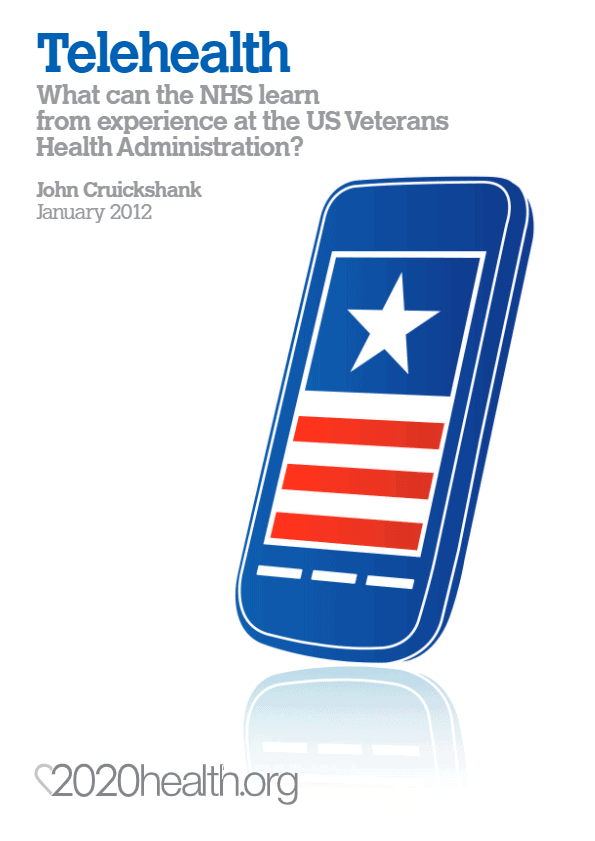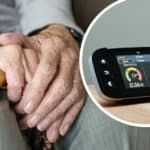Press Release: New report highlights potential telehealth possibilities of smart meters
- With an aging population and unprecedented demand on our healthcare services, the need for scalable, affordable health and care solutions is urgent: smart meters could form part of the solution
- The smart meter infrastructure offers a platform to support future health and care services at scale and potentially at good value
- An upgraded energy system with smart meters at its heart could transform the way we care for the most vulnerable in our society and support the elderly to live safely in their own homes
18th November 2020: Our new report, commissioned by Smart Energy GB, reveals how smart meters could become a telehealth solution sitting in virtually every home in Great Britain within just a few years, offering potential to reduce the pressure on our overloaded health and care services.
It is well known know that smart meters will enable a more resilient energy system, giving everyone in the country greater visibility and control over their energy use. They are also vital to the UK government’s Clean Growth Strategy, which is, in itself, a critical health and wellbeing strategy at the global level. The benefits of smart meters appear substantial, and our research suggests they may extend further still.
Our report reveals that, when the majority of households have smart meters, potential opportunities for the healthcare system will be unprecedented and could transform the way we care for the most vulnerable in our society. Three specific approaches reviewed were:
- Remote home monitoring (e.g. of vulnerable individuals or as part of post-operative or restorative care);
- Population-level screening and monitoring;
- Self-monitoring for wellbeing and safety.
One of the areas we highlight is the potential use of smart meter data to support people living with dementia. In the UK, there are currently around 850,000 people with dementia, and this is projected to rise to 1.6 million by 2040 [1]. The disease currently costs £26 billion a year. [2] Research suggests that smart meter data could, with consumer consent, improve care for people living with conditions such as dementia and Alzheimer’s, making it easier for more people to live independently in their homes for longer.
Energy use data from smart meters would be fed into a machine-learning system which could recognise patterns of appliance use over time and start to learn people’s daily routines. If the system identified unusual patterns of energy use, it could alert relatives or clinicians that the person may need additional support.
For example, use of kitchen appliances such as the kettle or toaster during the night could indicate insomnia, pain or mental health problems. An increase of energy use in late evenings or at night could indicate ‘sundowning’ syndrome, which is often a sign of progression from early stages of Alzheimer’s to more serious deterioration. Complete inactivity of appliances could indicate a fall, stroke or acute illness.
These predictors will be particularly relevant for health and social care, especially when looking at ways to support elderly individuals with health vulnerabilities to live safely and for longer in their own homes, or to help monitor patients following discharge from hospital.
“We were excited to find that an informal care offering with smart energy technology has already become a reality in Japan. Scaling affordable health and care solutions in Britain is always a challenge but remains urgent. Our aging society indicates a future of much greater healthcare need, and smart meter technology could prove useful in making it easier and safer for people with conditions, such as dementia, to live independently in their homes for longer, delaying transition to the care home setting and providing peace of mind to family and loved ones. Harnessing this technology could bring benefits to all: patients, caregivers, family members and healthcare providers across the UK,” commented Julia Manning, Director of 2020health and member of the Royal Society of Medicine’s Digital Health Council.
Iagan MacNeil, Head of Policy at Smart Energy GB said: “This new report shows the amazing potential of smart meter data; by installing smart meters into every home in Britain, we can potentially create a future platform to support health services at large scale and in a cost effective way. It could be an efficient and non-intrusive way to monitor an individual’s health, while also helping to relieve pressure on those working in primary care. We’re calling for cross-sector innovation and collaboration among our world-class research centres and healthcare providers in order to develop this technological potential. For care providers, innovators and funders alike, now is the time to start thinking now about how energy data can be utilised to support care services.”
Prof June Andrews, Dementia Services Development Centre, University of Stirling and author of ‘Care Homes; When, Why and How to Choose a Care Home’ concluded: “It is good to see that thinking and research is going into this area. The anxiety that is felt by families of people with dementia living alone is often what precipitates institutional care, and so anything that makes for more sophisticated, but unobtrusive monitoring is very welcome both to the person with dementia and their family”.
An event will be held on the 18th November to launch the Smart Future of Healthcare report, bringing together a wide range of stakeholders, from energy suppliers to innovators, to charities and health professionals. The event, chaired by Simon Elam (Principal Research Fellow and Director of the Smart Energy Research Lab, UCL Energy Institute), will focus on the role smart meters could potentially play in supporting healthcare services in the future.
ENDS
Notes to editors
About smart meters and the rollout
Britain is committed to a cleaner future – one with zero carbon emissions and reduced pollution.
To make this happen, our nation requires a major upgrade to its energy infrastructure, specifically, it requires the creation of a smart energy system. Smart meters, which replace traditional, analogue meters, are the building blocks of a more reliable, clean and affordable energy infrastructure, allowing Great Britain to better manage energy use, transition to mass uptake of electric vehicles and to build a greener economy.
There are already 21.5 million smart meters installed in homes and microbusinesses across Great Britain. Every household in England, Scotland and Wales can now see their energy use in near real time, receive accurate bills and do their bit for the planet, by requesting a smart meter, at no extra cost, from their energy supplier.
About Smart Energy GB
Smart Energy GB is the campaign for a smarter Britain. It’s our task to help everyone in Great Britain understand smart meters, the national rollout and how to use their new meters to be cleaner and greener with their energy use. Our national campaign is reaching households and microbusinesses in England, Scotland and Wales. For more information visit our website smartenergyGB.org.
Smart Energy GB media contacts
For more information including interview requests, case studies of smart meter users, infographics, photography and video content please contact the Smart Energy GB media team: [email protected]
About 20/20health
20/20health is an independent, social enterprise think tank working to improve health through research, campaigning and relationships. Founded in 2006 as an online platform to facilitate public and frontline professionals’ involvement in health and wellbeing, 20/20health has influenced opinion and action in fields as diverse as bioethics, obesity, emerging technologies, fraud, education, consumer health technologies and health for work.
In 2014, 20/20health became the founding partners of the Health Tech and You Awards with Axa PPP and the Design Museum. Since 2016, 20/20health has increasingly focused on digital and public health in the community, including exploring the concept of Whole School Wellbeing. Health technology publications have covered NHS IT, telehealth, use of technology by the US Veteran’s Health Administration, personal electronic healthcare records and disruptive technology in the optical sector. 20/20health believes public and frontline participation in health and research are essential for improving healthcare.
[1] https://www.alzheimers.org.uk/about-us/news-and-media/facts-media
[2] Alzheimer’s society, 2014


